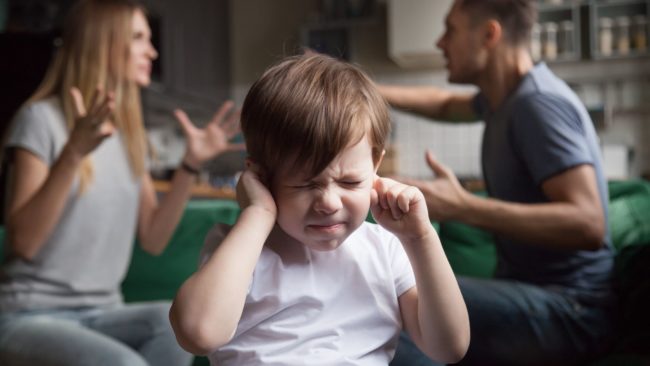
Parenting is a hefty responsibility and causes daily stress- add in varying opinions on handling situations and you’ve got parental conflict as well. It’s normal for mum and dad to have different views on how to handle various child-related matters, but these disagreements can become a difficulty for the whole family.
What is parental conflict?
Let’s say your daughter is meant to be going to her friend’s house tomorrow, but she’s just drawn on her bedroom wall with crayon. Parent 1 feels that their daughter can still go to the playdate if she helps clean the wall, but parent 2 is outraged at the mess and thinks their daughter should miss out on the fun.
Who is right? While both opinions have merit, and may even be founded on previous experience (is this maybe not the first time she has drawn on the wall?), neither are definitely correct, because there is no definitive answer. However, while dealing with a stressful parenting situation both parents may feel their view is correct, and dig their heels in with their opinion.
This can cause a disagreement and arguing, sometimes in front of the child at the centre of the row.
How does parental conflict affect a child?
Parental conflict is hard for kids to witness. To them, their home is their safe space, and the rules and boundaries that they must adhere to offer consistency. When parents disagree over parenting, it can make for a rocky home environment and upset all round.
Children may also blame themselves for being the ’cause’ of the arguing, which can cause them guilt, distress and upset.
Therefore, niggles between parents make children feel insecure about their home life. In a bid to create a peaceful home and a united front, parents must work to find a middle ground between their opinions.
How to avoid conflict- our expert’s advice
We spoke to Spurgeons’ Counselling Lead Debbie Pattison about how parents can handle these disagreements.
‘You are not alone,’ Debbie says. ‘It can be very common to have disagreements and differences in opinions when it comes to parenting. The important thing is to address these differences of opinions before it leads to tension in the household. Children can also pick up on this tension, particularly if your disagreements are in front of them.’
Debbie advises that talking is the way forward. ‘Parents need to have an open and honest conversation about their beliefs on parenting. Discuss how you were both parented and share the highs and lows of this with each other,’ she advises. ‘Talk about whether you want to parent in the same way as you were parented, or whether it’s better to do things differently now with your child.’
Discussion is key
‘Being able to listen to each other’s views will help you decide on what’s important to you both,’ says Debbie. ‘Collaboration is key here and being able to be flexible and respectful of your differences in opinions, feelings and motivations.’
When conflict between parents has reached arguing levels, Debbie suggests that couples counselling may help. ‘Sometimes being able to have these discussions with a trained therapist can enable you both to find compromises together,’ she says.
Interested in counselling? Spurgeons offer a counselling service.
Want to chat to other dads? Join our friendly forum.









